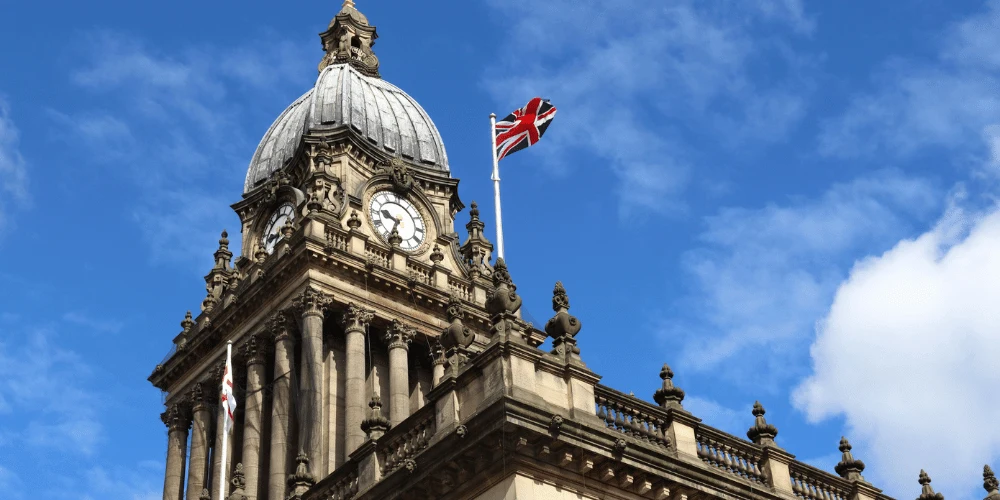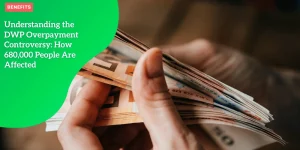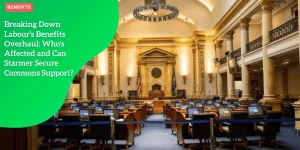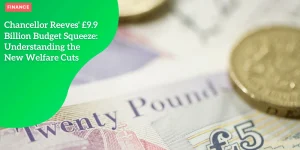Labour Must Prioritise Poverty Reduction to Counter Reform UK Surge, Warns Big Issue Founder
Anúncios
As the next general election draws closer, public dissatisfaction with the political status quo is reaching a boiling point.
According to Lord John Bird, the founder of The Big Issue, Labour’s political future – and the broader stability of the UK – hinges on whether it takes bold, decisive action against poverty, particularly child poverty.
Anúncios
Without it, he warns, populist alternatives like Reform UK could continue to gain traction with disillusioned voters.
In a crucial step, Lord Bird plans to introduce an amendment to the Children’s Wellbeing and Schools Bill, which would mandate all UK governments to establish and achieve child poverty reduction targets.
Anúncios
This step, he argues, is essential to re-establishing public trust and avoiding a return to the economic suffering of post-war Britain — a period he knows all too well, having been born into poverty in 1946 and homeless by the age of five.
A Crisis Growing in the Shadows
The scale of poverty in the UK is increasingly difficult to ignore.
The most recent official statistics indicate that 4.5 million children were living in poverty in the year leading up to April 2024 — a rise of 100,000 on the previous year.
For campaigners, this surge signals a systemic failure that goes far beyond short-term policy tweaks.
Lord Bird has been vocal in condemning the lack of long-term planning by successive governments, stating:
“This government, like those who came before it, has lost the trust of its supporters by muddling through. Instead of building a sustainable future, they continue to drag poverty along with them.”
He further argued that poverty is being created faster than at any other point in the 21st century, with political indecisiveness and a focus on short-term survival playing a central role.
The Amendment: Building Accountability into Law
To change this trajectory, Bird is tabling an amendment to the government’s flagship children’s and schools legislation.
If accepted, this clause would place a statutory obligation on current and future governments to set measurable, time-bound targets to reduce child poverty.
The aim is not just symbolic — it’s to introduce real accountability into how poverty is tackled across the UK.
As Bird puts it, the goal is to ensure that tackling poverty is no longer “left to the whims of politicians.”
His proposal is receiving support from major child welfare organisations, including the National Children’s Bureau.
Anna Feuchtwang, the Chief Executive, shared his views, stating:
“Legally binding targets to reduce child poverty will help turn political rhetoric into actual change in people’s lives.”
Why Labour Must Lead the Charge
Although the proposed amendment applies to any party in power, it sends a direct challenge to Labour — a party that, historically, has been associated with welfare reform and social justice.
With a general election approaching, Labour has vowed to include an “ambitious strategy to tackle child poverty” in its manifesto.
However, many critics and advocacy groups remain sceptical, especially while policies like the two-child benefit cap remain intact.
Polling data suggests the public agrees that not enough is being done.
In a recent YouGov survey commissioned by The Big Issue, 72% of respondents said they believe Labour should be more active in tackling poverty — an increase of 18 percentage points in just over six months.
| Time Period | Think Labour is Not Doing Enough |
|---|---|
| September 2024 | 54% |
| April 2025 | 72% |
Such figures indicate a growing frustration among voters, particularly in working-class areas hardest hit by austerity and stagnating wages.
The concern is that unless Labour becomes more vocal and proactive, disaffected voters may look elsewhere — to parties like Reform UK.
The Rise of Reform UK: A Symptom, Not the Disease
Lord Bird was blunt in stating that the rise of Nigel Farage’s Reform UK is a result of political neglect:
“They’re gaining ground only because the major parties have lost their way.”
While Reform UK has focused largely on issues such as immigration, net zero scepticism, and freedom of speech, its rise is inextricably tied to public anger over economic exclusion.
Bird argues that by allowing poverty to persist, traditional parties are effectively surrendering the narrative to populists who thrive on discontent.
What’s more troubling is that poverty is becoming increasingly invisible in political discourse, even as it spreads.
With inflation still outpacing wage growth, housing costs soaring, and public services under strain, millions are finding it harder to meet basic needs.
Children’s Wellbeing and the Role of Education Policy
Bird’s amendment is part of the wider Children’s Wellbeing and Schools Bill, which is currently moving through the House of Lords.
The bill includes a range of reforms intended to improve the overall quality of life and education for children across England.
Key elements include:
-
🇬🇧Mandatory free breakfast clubs for all primary schools
-
🇬🇧A national register for children not enrolled in school
-
🇬🇧Caps on branded school uniform costs
-
🇬🇧Tighter rules for academy trusts on financial transparency and pupil welfare
While these proposals are welcome, Bird and others argue they fall short of tackling the root causes of educational inequality — namely poverty.
Without addressing the economic hardship many pupils face at home, even the best school reforms will struggle to close attainment gaps or improve wellbeing.
The Two-Child Limit: A Barrier to Change
One of the most widely criticised policies affecting child poverty is the two-child limit on benefits, which restricts financial support to the first two children in most families.
Campaigners have long called for its abolition, arguing it unfairly penalises larger families and pushes thousands of children below the poverty line each year.
Although Labour has acknowledged the damage caused by the policy, they have so far stopped short of committing to scrap it — largely due to concerns about the financial cost.
However, Bird and his supporters insist that this is a false economy, pointing out that the long-term societal costs of child poverty far outweigh the short-term savings.
A Call to Action: Long-Term Vision Over Political Football
The overarching message from Lord Bird’s intervention is clear: poverty reduction must be treated as a long-term national priority, not a reactive campaign promise.
This means putting legal frameworks in place, funding early intervention strategies, and designing cross-departmental efforts to address the drivers of poverty — housing, employment, education, and health.
“Only by committing to long-term measurable goals,” said Feuchtwang, “can we prevent poverty being a political football.”
In practice, this could involve policies such as:
-
🇬🇧Universal access to early years education
-
🇬🇧Support for low-income working families
-
🇬🇧Affordable housing guarantees
-
🇬🇧Integrated mental health services in schools
-
🇬🇧Raising the minimum wage in line with living costs
Conclusion: The Clock Is Ticking for Labour
The rise of Reform UK is a stark warning to all major parties that political apathy and economic neglect breed radical alternatives.
For Labour, the challenge is not simply to oppose, but to lead with courage, clarity, and compassion.
Lord Bird’s amendment offers a meaningful opportunity to do just that — by embedding poverty reduction into the heart of government responsibility.
As public pressure builds and poverty figures climb, the time for half-measures is over. If Labour wants to command the trust of voters again, it must not only speak about ending poverty — it must make it law.







